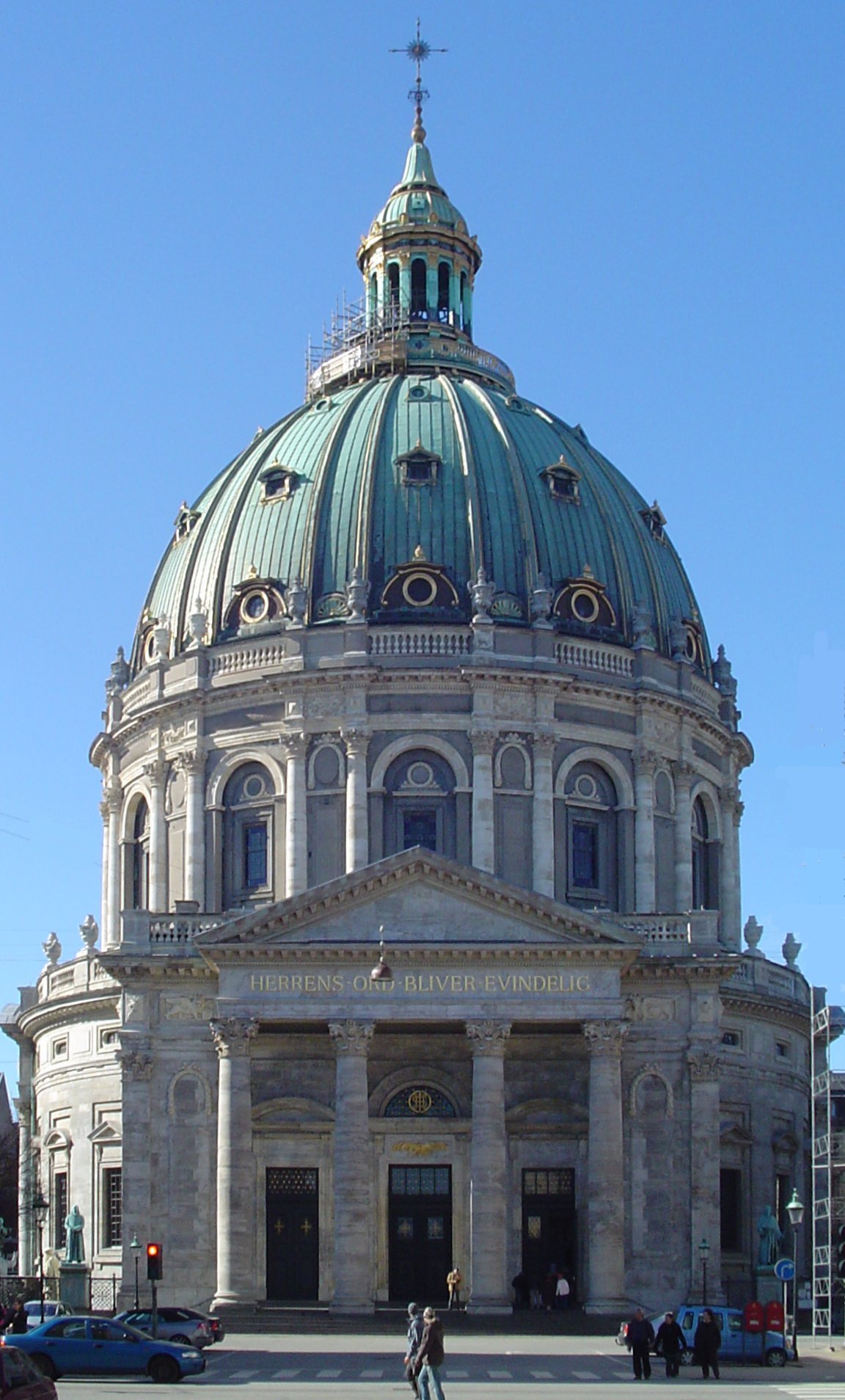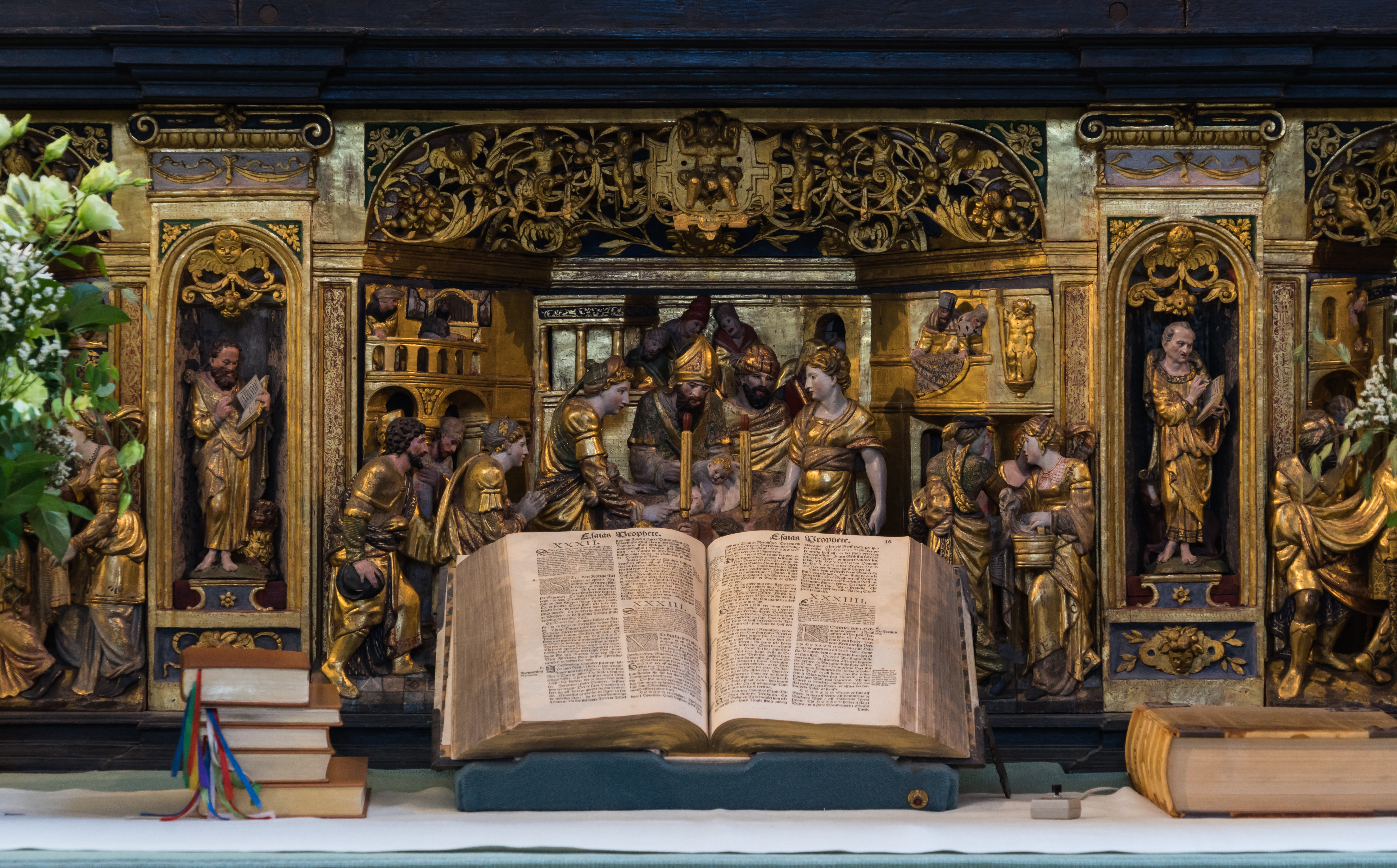|
Lise-Lotte Rebel
Lise-Lotte Rebel (born 23 January 1951) is a bishop of the Church of Denmark. Between 1995 and 2021, she served as the bishop of the Diocese of Helsingør in the Evangelical Lutheran Church of Denmark. She was the first woman to become a bishop in the Church of Denmark. Biography Rebel studied theology at the University of Copenhagen in 1978. She was then appointed as pastor of Utterslev Church between 1978 and 1980. In 1980 she was transferred to Islev Church until 1987 when she was appointed as pastor of Helsingør Cathedral. She stayed in this position until her election as bishop of the same diocese in 1995. Lise-Lotte Rebel was awarded the Order of the Dannebrog in 1996 and in 2001 became a Knight of the Order of the Dannebrog The Order of the Dannebrog ( da, Dannebrogordenen) is a Danish order of chivalry instituted in 1671 by Christian V. Until 1808, membership in the order was limited to fifty members of noble or royal rank, who formed a single class know ... [...More Info...] [...Related Items...] OR: [Wikipedia] [Google] [Baidu] |
Diocese Of Helsingør
The Diocese of Helsingør ( Danish: Helsingør Stift) is a diocese within the Evangelical Lutheran Church of Denmark. It comprises the Danish Capital Region except for the core municipalities of Copenhagen, Frederiksberg, Tårnby and Dragør. Disjoined from the Diocese of Copenhagen on 1 January 1961, it is the most recently established of the 10 dioceses within the Danish state church. The main church is Saint Olaf's Church in Helsingør. The current bishop is Peter Birch who succeeded Lise-Lotte Rebel on 1 April 2021. List of Bishops * J.B. Leer-Andersen, 1961–1980 *Johannes Johansen, 1980–1995 *Lise-Lotte Rebel Lise-Lotte Rebel (born 23 January 1951) is a bishop of the Church of Denmark. Between 1995 and 2021, she served as the bishop of the Diocese of Helsingør in the Evangelical Lutheran Church of Denmark. She was the first woman to become a bishop i ..., 1995–2021 * Peter Birch, 2021–present References {{DEFAULTSORT:Helsingor, Diocese Of Church ... [...More Info...] [...Related Items...] OR: [Wikipedia] [Google] [Baidu] |
Islev
Islev is a suburb, located approximately 10 km west of central Copenhagen, Denmark. The suburb consists of single-family detached houses and a commercial area. The suburb is connected to Copenhagen by the S-train. Islev Station is located just east of the border between Islev and Vanløse Vanløse is one of the 10 official districts of Copenhagen, Denmark. It lies on the western border of the municipality. Vanløse covers an area of 6.69 km², and has a population of 36,115, making Vanløse the smallest district of Copenhagen ..., just outside Islev itself. Geography of Copenhagen {{CapitalDK-stub ... [...More Info...] [...Related Items...] OR: [Wikipedia] [Google] [Baidu] |
People From Lyngby-Taarbæk Municipality
A person ( : people) is a being that has certain capacities or attributes such as reason, morality, consciousness or self-consciousness, and being a part of a culturally established form of social relations such as kinship, ownership of property, or legal responsibility. The defining features of personhood and, consequently, what makes a person count as a person, differ widely among cultures and contexts. In addition to the question of personhood, of what makes a being count as a person to begin with, there are further questions about personal identity and self: both about what makes any particular person that particular person instead of another, and about what makes a person at one time the same person as they were or will be at another time despite any intervening changes. The plural form " people" is often used to refer to an entire nation or ethnic group (as in "a people"), and this was the original meaning of the word; it subsequently acquired its use as a plural ... [...More Info...] [...Related Items...] OR: [Wikipedia] [Google] [Baidu] |
University Of Copenhagen Alumni
A university () is an institution of higher (or tertiary) education and research which awards academic degrees in several academic disciplines. ''University'' is derived from the Latin phrase ''universitas magistrorum et scholarium'', which roughly means "community of teachers and scholars". Universities typically offer both undergraduate and postgraduate programs. The first universities in Europe were established by Catholic Church monks. The University of Bologna (), Italy, which was founded in 1088, is the first university in the sense of: *being a high degree-awarding institute. *using the word ''universitas'' (which was coined at its foundation). *having independence from the ecclesiastic schools and issuing secular as well as non-secular degrees (with teaching conducted by both clergy and non-clergy): grammar, rhetoric, logic, theology, canon law, notarial law.Hunt Janin: "The university in medieval life, 1179–1499", McFarland, 2008, , p. 55f.de Ridder-Symoens, Hild ... [...More Info...] [...Related Items...] OR: [Wikipedia] [Google] [Baidu] |
Women Lutheran Bishops
A woman is an adult female human. Prior to adulthood, a female human is referred to as a girl (a female child or adolescent). The plural ''women'' is sometimes used in certain phrases such as " women's rights" to denote female humans regardless of age. Typically, women inherit a pair of X chromosomes, one from each parent, and are capable of pregnancy and giving birth from puberty until menopause. More generally, sex differentiation of the female fetus is governed by the lack of a present, or functioning, SRY-gene on either one of the respective sex chromosomes. Female anatomy is distinguished from male anatomy by the female reproductive system, which includes the ovaries, fallopian tubes, uterus, vagina, and vulva. A fully developed woman generally has a wider pelvis, broader hips, and larger breasts than an adult man. Women have significantly less facial and other body hair, have a higher body fat composition, and are on average shorter and less muscular th ... [...More Info...] [...Related Items...] OR: [Wikipedia] [Google] [Baidu] |
Danish Lutheran Bishops
Danish may refer to: * Something of, from, or related to the country of Denmark People * A national or citizen of Denmark, also called a "Dane," see Demographics of Denmark * Culture of Denmark * Danish people or Danes, people with a Danish ancestral or ethnic identity * A member of the Danes, a Germanic tribe * Danish (name), a male given name and surname Language * Danish language, a North Germanic language used mostly in Denmark and Northern Germany * Danish tongue or Old Norse, the parent language of all North Germanic languages Food * Danish cuisine * Danish pastry, often simply called a "Danish" See also * Dane (other) * * Gdańsk * List of Danes * Languages of Denmark The Kingdom of Denmark has only one official language, Danish, the national language of the Danish people, but there are several minority languages spoken, namely Faroese, German, and Greenlandic. A large majority (about 86%) of Danes also s ... {{disambiguation Language and natio ... [...More Info...] [...Related Items...] OR: [Wikipedia] [Google] [Baidu] |
21st-century Danish Clergy
The 1st century was the century spanning AD 1 ( I) through AD 100 ( C) according to the Julian calendar. It is often written as the or to distinguish it from the 1st century BC (or BCE) which preceded it. The 1st century is considered part of the Classical era, epoch, or historical period. The 1st century also saw the appearance of Christianity. During this period, Europe, North Africa and the Near East fell under increasing domination by the Roman Empire, which continued expanding, most notably conquering Britain under the emperor Claudius (AD 43). The reforms introduced by Augustus during his long reign stabilized the empire after the turmoil of the previous century's civil wars. Later in the century the Julio-Claudian dynasty, which had been founded by Augustus, came to an end with the suicide of Nero in AD 68. There followed the famous Year of Four Emperors, a brief period of civil war and instability, which was finally brought to an end by Vespasian, ninth Roman emperor, ... [...More Info...] [...Related Items...] OR: [Wikipedia] [Google] [Baidu] |
Order Of The Dannebrog
The Order of the Dannebrog ( da, Dannebrogordenen) is a Danish order of chivalry instituted in 1671 by Christian V. Until 1808, membership in the order was limited to fifty members of noble or royal rank, who formed a single class known as ''White Knights'' to distinguish them from the ''Blue Knights'' who were members of the Order of the Elephant. In 1808, the Order was reformed and divided into four classes. The ''Grand Commander'' class is reserved to persons of princely origin. It is awarded only to royalty with close family ties with the Danish Royal House. The statute of the Order was amended in 1951 by a Royal Ordinance so that both men and women could be members of the Order. Today, the Order of the Dannebrog is a means of honouring and rewarding the faithful servants of the modern Danish state for meritorious civil or military service, for a particular contribution to the arts, sciences or business life, or for working for Danish interests. Insignia The ''b ... [...More Info...] [...Related Items...] OR: [Wikipedia] [Google] [Baidu] |
University Of Copenhagen
The University of Copenhagen ( da, Københavns Universitet, KU) is a prestigious public university, public research university in Copenhagen, Copenhagen, Denmark. Founded in 1479, the University of Copenhagen is the second-oldest university in Scandinavia after Uppsala University, and ranks as one of the top universities in the Nordic countries, Europe and the world. Its establishment sanctioned by Pope Sixtus IV, the University of Copenhagen was founded by Christian I of Denmark as a Catholic teaching institution with a predominantly Theology, theological focus. In 1537, it was re-established by King Christian III as part of the Lutheran Reformation. Up until the 18th century, the university was primarily concerned with educating clergymen. Through various reforms in the 18th and 19th century, the University of Copenhagen was transformed into a modern, Secularism, secular university, with science and the humanities replacing theology as the main subjects studied and taught. Th ... [...More Info...] [...Related Items...] OR: [Wikipedia] [Google] [Baidu] |
Church Of Denmark
The Evangelical-Lutheran Church in Denmark or National Church, sometimes called the Church of Denmark ( da, Folkekirken, literally: "The People's Church" or unofficially da, Den danske folkekirke, literally: "The Danish People's Church"; kl, Ilagiit, literally: "The Congregation"), is the established, state-supported church in Denmark. The supreme secular authority of the church is composed of the reigning monarch and Denmark's Parliament, the Folketing. , 73.2% of the population of Denmark are members,Church membership 1990-2021 Kirkeministeriet though membership is voluntary.Freedom of re ... [...More Info...] [...Related Items...] OR: [Wikipedia] [Google] [Baidu] |
Evangelical Lutheran Church Of Denmark
The Evangelical-Lutheran Church in Denmark or National Church, sometimes called the Church of Denmark ( da, Folkekirken, literally: "The People's Church" or unofficially da, Den danske folkekirke, literally: "The Danish People's Church"; kl, Ilagiit, literally: "The Congregation"), is the established, state-supported church in Denmark. The supreme secular authority of the church is composed of the reigning monarch and Denmark's Parliament, the Folketing. , 73.2% of the population of Denmark are members,Church membership 1990-2021 Kirkeministeriet though membership is voluntary.Freedom of reli ... [...More Info...] [...Related Items...] OR: [Wikipedia] [Google] [Baidu] |
_1938.jpg)
.jpg)



